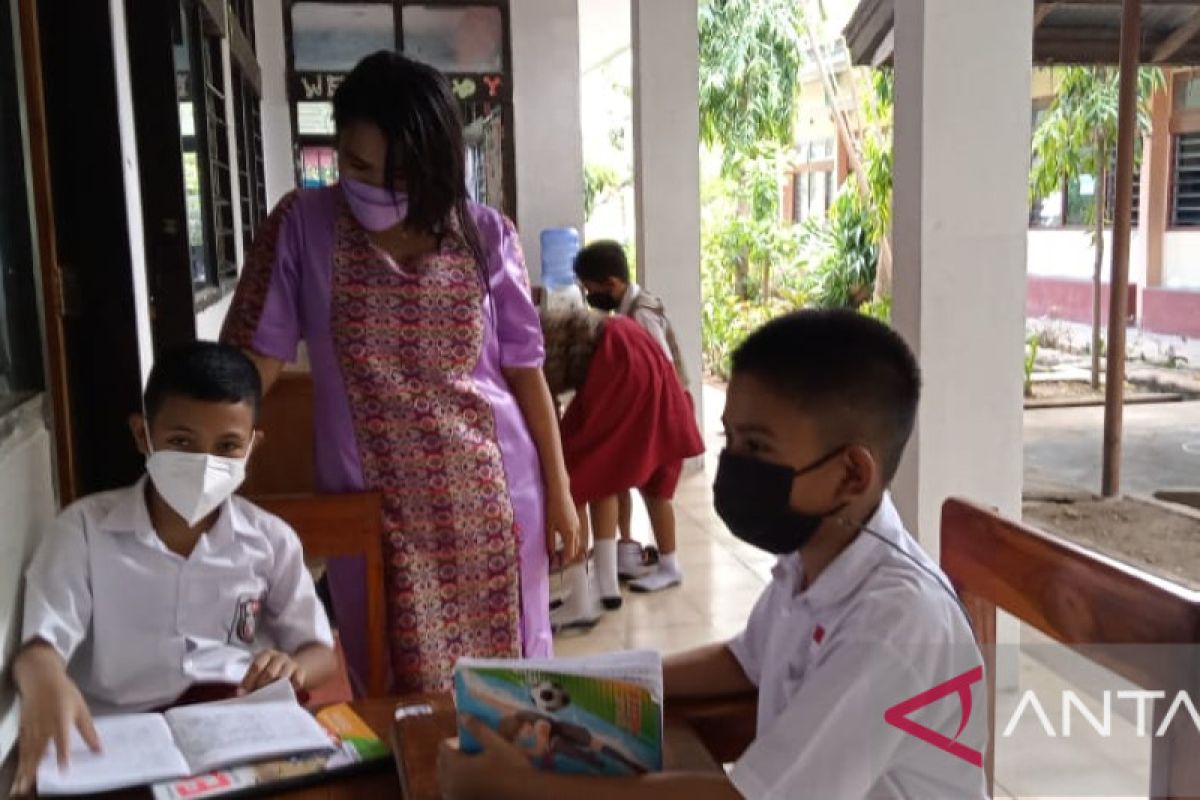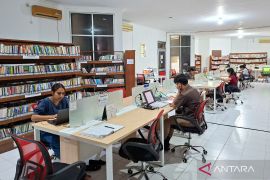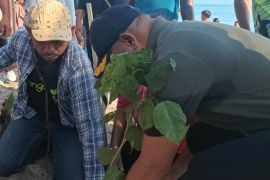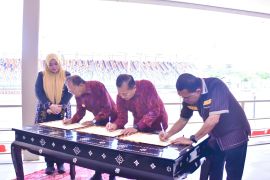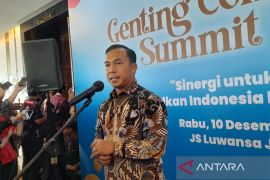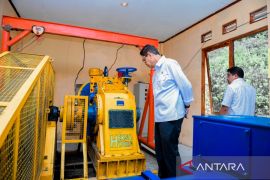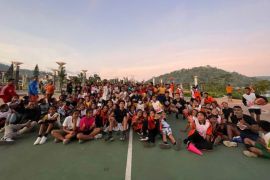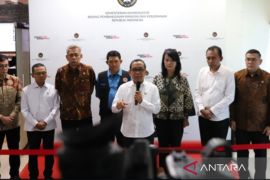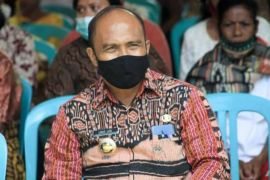We have around 10 primary schools that become the model for the implementation of mother language in school activities in Nagekeo DistrictKupang, East Nusa Tenggara (ANTARA) - The Education, Culture, Research, and Technology Ministry’s “Merdeka Belajar” (Freedom in Learning) programme has heralded a new phase of freedom for educational institutions and educators to innovate through new-fangled learning approaches that respect local wisdom.
The programme has also brought a breath of fresh air to educational institutions in East Nusa Tenggara Province that are struggling to conduct classes for early-age students whose native languages are not Indonesian.
Students living in remote areas and seldom speaking Indonesian outside school are struggling to keep up with school subjects that are taught in the language that they do not understand.
According to the province’s Education and Culture Office, some 1.3 million school-age children in the province are not enrolled in any schools due to several issues, primarily the language barrier.
Utilising the mother language in the early stages of primary school level, by spoken and written means, is essential to develop a literacy foundation and instil basic concepts that students must understand to broaden their perspective.
Related news: Pandemic offers chance to re-evaluate education system: Makarim
Comprehending the benefits of using mother language as the medium of instruction during class activities, the Nagekeo district authority in Flores Island, East Nusa Tenggara, has allowed local languages to be used as the medium of instruction at 10 primary schools in Boawae Sub-district to enhance the school experience of pupils and alleviate the language barrier issue encountered in class activities.
“We have around 10 primary schools that become the model for the implementation of mother language in school activities in Nagekeo District,” district head Johanes Don Bosco Do noted in a webinar on the use of mother languages in class activities on Tuesday (Mar 8).
Don Bosco said his administration currently focuses on increasing attendance levels at 158 early-age schools, 180 primary schools, and 62 junior high schools in the district.
Following positive response from residents to the programme that has been implemented since 2021, the authority decided to allow 20 more schools to utilise the pupils’ mother language as the medium of instruction, and as of 2022, around 30 primary schools have shifted their medium of instruction to cater to their pupils.
He called on the Nagekeo authority to make thorough preparations before allowing designated schools to switch their medium of instruction to local languages. After identifying eligible schools, the authority continued the process by conducting training on teaching concepts and studying the plan to school teachers and creating visual props for class activities to help pupils understand new concepts that their teacher taught.
Related news: RI calls for organizing, rebuilding education system through G20 EdWG
The district’s school superintendent, Petrus Buku, stated that the pupils’ native language is used in class games and songs, and each pupil will receive a study book to bolster their study.
“Class activities will involve playing games and singing songs in local languages that would motivate pupils to study. Pupils will also receive study books that will help them learn the alphabet,” Buku remarked.
The superintendent noted that as compared to schools that do not utilise the pupils’ mother language in class activities, pupils taught in their mother language could learn to read faster.
Related news: Ministry to introduce Freedom in Learning program at G20 EdWG
Benefits of teaching in pupils’ mother language
The Ministry of Education, Culture, Research, and Technology’s Head of the Educational Standards, Curriculum, and Assessment Agency, Anindito Aditomo, at the same webinar, noted that some children in remote and underdeveloped regions were struggling to catch up with class activities if their class is conducted in the Indonesian language.
He highlighted that class activity conducted in the pupils’ mother language would have linguistic, pedagogical, and psychological benefits for them. Pupils could comprehend language grammar concepts faster if taught in their mother language.
Aditomo affirmed that the mother language in class activities would serve as a bridge for pupils to learn written and spoken Indonesian, so they would have a good command over Indonesian and their mother language, as the language is taught in words they understood.
Teachers teaching pupils in their mother language could start by honing speaking and phonetic skills of the mother language before progressing to the subsequent teaching activities, which included learning Indonesian, the agency head suggested.
Related news: Teacher as Driving Forces Program to boost quality of education
“Teachers can start with fun activities, such as observation, listening, singing, roleplaying, narrating events, and retelling narratives delivered by the teacher,” he remarked.
Aditomo opined that prioritising phonetic skills will suit pupils not proficient in the Indonesian language since if their class activities are conducted only in Indonesian, the study goal will not be achieved, as they are compelled to study in the language they barely understood.
Moreover, Director of Seameo Qitep in Language (SEAQIL) Luh Anik Mayani also highlighted the importance of conducting class activities in the pupils’ mother language that will benefit pupils.
The UNESCO has proposed to the global community to conduct class activities in schools in the pupils’ mother language, either through a bilingual or multilingual approach, she remarked.
Mayani said that class activities conducted in the pupils’ mother language will increase the school attendance level among children, particularly female children, thereby boosting the children’s literacy capability in the mother language or the second language, and helping pupils to focus on class activities and boost the education quality.
Related news: KSP encourages revision of national education system
According to an analysis conducted by SEAQIL in the districts of Bandung and Garut in West Java and in the districts of Bantul and Gunung Kidul in Yogyakarta in 2013, some 61 percent of the teachers admitted that pupils in their class are struggling to understand class subjects delivered in the Indonesian language due to the language barrier.
Another report also revealed that 80 percent of West Java's teachers reported that pupils could understand class subjects better if the class is conducted in their native language due to limitations to their comprehension of the Indonesian language, she added.
Teachers and the educational authority are required to be creative in devising methods to motivate more children to attend schools. The use of the pupils’ mother language in school will surely attract children, and they will start viewing school as an extension of their living spaces instead of a strange place where teachers speak a language that they do not understand.
Related news: Pertamina provides 50 free booths for MSMEs at Mandalika MotoGP
Related news: Ministry optimizes 16 weak signal points in Lombok for MotoGP
Editor: Fardah Assegaf
Copyright © ANTARA 2022
